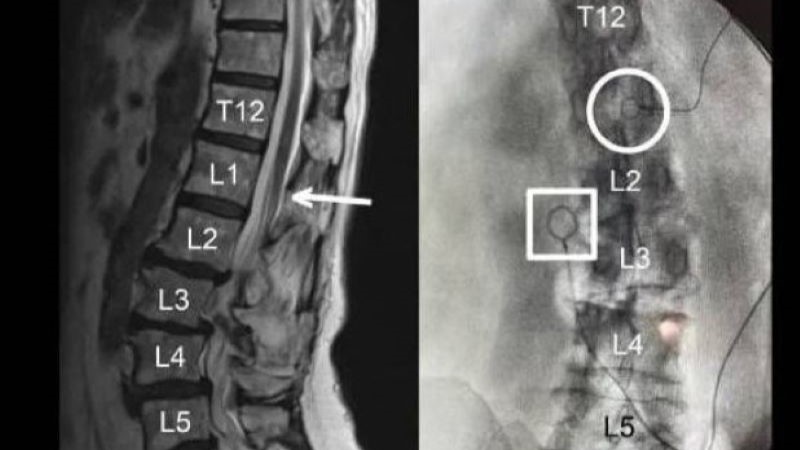
Two recently published studies estimated how long patients who undergo hip or knee replacements can expect their implants to last.
In both studies, the researchers note that both hip and knee replacements will eventually fail. Given that prevalence and effectiveness of both, it is important for patients to have an idea of how long they can expect their implants to last.
Both studies, published in The Lancet, were performed by the same research team. The researchers queried MEDLINE and Embase for studies reporting at least 15-year survival of hip and knee implants. They also reviewed national joint replacement registry reports. Case series and registry data were analyzed separately.
VIDEO: How long do #hipreplacements and #kneereplacements last? https://t.co/hWbUQPXwJy
Read the two new systematic review & meta-analyses @bristoluni funded by @jointregistry & @rcsnews:
Hip replacement https://t.co/CgORQtLKMD
Knee replacement https://t.co/I3uhbYvqjQ— The Lancet (@TheLancet) February 15, 2019
Survivorship of Hip Replacements
Given the increasing life expectancy of the population, it is that much more important to give patients as much information as possible on how long they can expect their hip implant to last.
“To counsel patients accurately and appropriately, benchmark treatment strategies, plan health-care provision, and for medicolegal purposes, it is important to know how long a total hip replacement might last,” the study authors wrote. “Life expectancy is rising and thus the long-term survivorship of the total hip replacement construct is increasingly relevant.”
For the hip implant study, the study authors searched both databases from inception through Sept. 12, 2017, on patients with osteoarthritis undergoing primary, conventional total hip replacement. A total of 44 series were included in final analysis, covering data on 13,212 total hip replacements; national registry data from Australia and Finland yielded data for 92 series, spanning 215,676 total hip replacements.
Case series data found a 25-year pooled hip replacement survival rate of 77.6% (95% CI 76.0–79.2), while the registry data found a survival rate of 57.9% (95% CI 57.1–58.7).
“Assuming that estimates from national registries are less likely to be biased, patients and surgeons can expect a hip replacement to last 25 years in around 58% of patients,” the researchers observed.
https://twitter.com/VikChatrathMD/status/1097511082531475456
Survivorship of Knee Replacements
“The aim of knee replacement surgery is the long-term relief of pain and restoration of function. Unfortunately, knee replacements fail for a variety of reasons, including loosening, infection, persistent pain, and instability, and might require revision within the lifetime of the recipient,” the researchers wrote. “Knowing what the long-term failure rates are is important to facilitate resource planning, medicolegal assessment, benchmarking of different implants, and the provision of informed consent to patients.”
Review of 541,744 total knee replacement (TKR) in Australia (1999-2017) finds lower revision rates in RA vs. OA, but increased risk of infection in RA (esp. males) https://t.co/rIpSFWSNfY
— Dr. John Cush (@RheumNow) February 19, 2019
The researchers searched MEDLINE and Embase for eligible studies from inception through July 21, 2018, and identified 33 case series providing data on all-cause survival for 6,490 total knee replacements and 742 unicondylar knee replacements. There was no eligible data for patellofemoral replacements, and no case series data on 25-year total knee replacement survival. National registry data provided results for 299,291 total knee replacements and 7,714 unicondylar knee replacements.
When reviewing the database results, the estimated 25-year survival rate for unicondylar knee replacement, based on one case series, was 72% (95% CI 58.0–95.0). Registry data for 25-year total knee replacement revealed a survival rate of 82.3% (95% CI 81.3–83.2); for unicondylar knee replacement, 25-year survivorship was 69.8% (95% CI 67.6–72.1).
As with the hip replacement data, the researchers believe the knee replacement registry data is more reliable than the database statistics.
https://twitter.com/SotonTC/status/1097854333440479232
All-Polyethylene Tibial Components in Total Knee Replacement: Early Failures
Study Highlights Potential of Smart Knee Implants
Outcomes of Dual Mobility Acetabular Cups in Total Hip Arthroplasty Patients
Source: The Lancet: How long does a knee replacement last?; How long does a hip replacement last?







 © 2025 Mashup Media, LLC, a Formedics Property. All Rights Reserved.
© 2025 Mashup Media, LLC, a Formedics Property. All Rights Reserved.